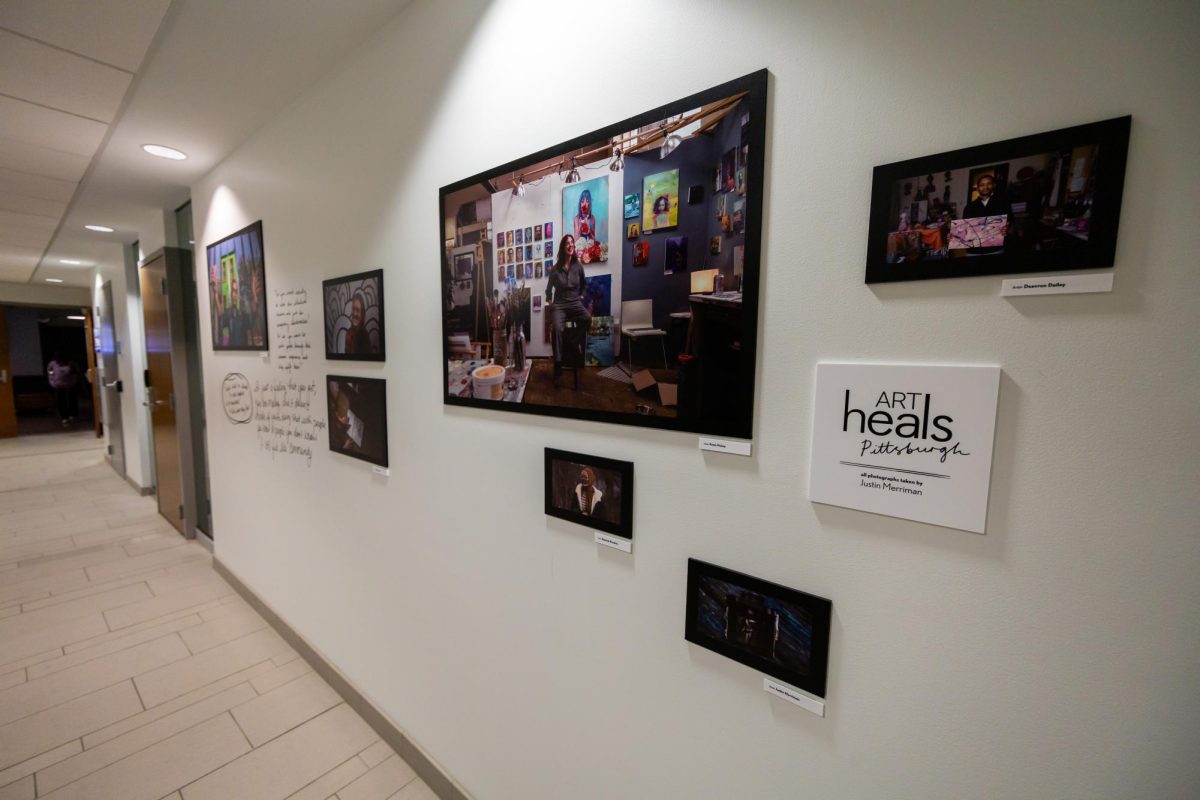DJ Laidback Luke talks music with The Pitt News
April 18, 2012
Dutch DJ Laidback Luke began making electronic music in 1992. He’s since evolved as an artist… Dutch DJ Laidback Luke began making electronic music in 1992. He’s since evolved as an artist and now labels his music “SweDutch,” a category that denotes the combination of Swedish and Dutch electronic music. He credits his parents, both of whom were musicians, as having significantly influenced his style.
As part of his “Speak Up” tour, DJ Laidback Luke will be performing in Pittsburgh this Saturday at Stage AE.
He talked with The Pitt News about his family, electronic dance music and personal sound.
The Pitt News: You started with graffiti. How did you make the transition to music?
DJ Laidback Luke: My first talent in life was drawing. I started drawing since I was 4 years old, and that transitioned into graffiti. I got caught when I was 16 years old and decided to focus more on my music. I actually see music as images; I see my songs as my graffiti nowadays.
TPN: Your parents have a musical background. Did they have any influence on your music?
LBL: Absolutely! My mom was always a singer and performer, and my dad was the one-man band behind my mom. He would always bring a drum machine and play the guitar. I’ve seen them both perform since I was in kindergarten. It definitely helped me to be musically active and not be shy on stage.
TPN: What instruments do you play?
LBL: I come from a musical family and everyone can play an instrument, but I was that kid that wasn’t able to play the instrument as well as the other family members, so that always kind of frustrated me. This is why I started to get into electronic music. Because when I found out I could actually make music with the help of a computer, I could finally unleash what has always been stuck in my mind.
TPN: Electronic music can be broken down into so many subgenres. How would you describe your sound, as well as the electronic music genre itself?
LBL: When I first got into this type of music in ’92, everything was called “house.” It could be soulful, harder, techno or more acid, but it was always called house. And with that type of mind-frame I’m still in this kind of music, which is why my sets are always that variable and I tend to mix up various styles of electronic dance music. To me it’s all the same. It’s just electronic dance music. To sum up my style, I would say it’s SweDutch. My production capabilities come from Swedish House Mafia, who are very much in the studio and about producing techniques. But, of course, I’m Dutch, and one of the founders of that typically Dutch sound. So my sets are most of the time switching back and forth to the Swedish big-room sound and the bleepy Dutch sound.
TPN: What’s the difference between the Swedish and Dutch sounds?
LBL: The Dutch sound is the bleepy kind of style you hear nowadays in commercial hip-hop. It’s always very bleepy-orientated and layered types of beats. The Swedish sound is very much Swedish House Mafia, who actually invented big-room house music.
TPN: We know you just played at Ultra and Coachella and have played at music festivals all over the world. What do you think about electronic music dominating these festivals and the rise of festivals in the U.S.?
LBL: I think it’s amazing! I’ve been touring the U.S. since 2000, and I remember the U.S. being a country focused on hip-hop and rock, so when I started to play here for the first time, people would ask me to play hip-hop or rock while I was only playing rave music. To see the rise of electronic dance music in the U.S. right now is a dream come true. This actually happened in Europe 10 years ago, and I always wondered why the U.S. stayed behind. But now it’s here, and it seems to be exactly at the right time. In Europe, it’s a bit stagnant at the moment, but to find this new crowd and impulse in the U.S. is a blessing actually.
TPN: It seems like electronic dance music has really come full circle, hasn’t it?
LBL: Yes. It started in places like Detroit and Chicago, and then crossed over to Europe and flourished there. But now it’s back again, so it has come full circle.
TPN: What can we expect from your show at Stage AE?
LBL: My shows always come from watching the crowd and the vibe and the moment itself, and on the split second I’ll decide what to drop or what to do. So basically my sets are always improv. The only thing I know is that I’ll bring the energy and the fun and I hope the crowd will do so, too.







